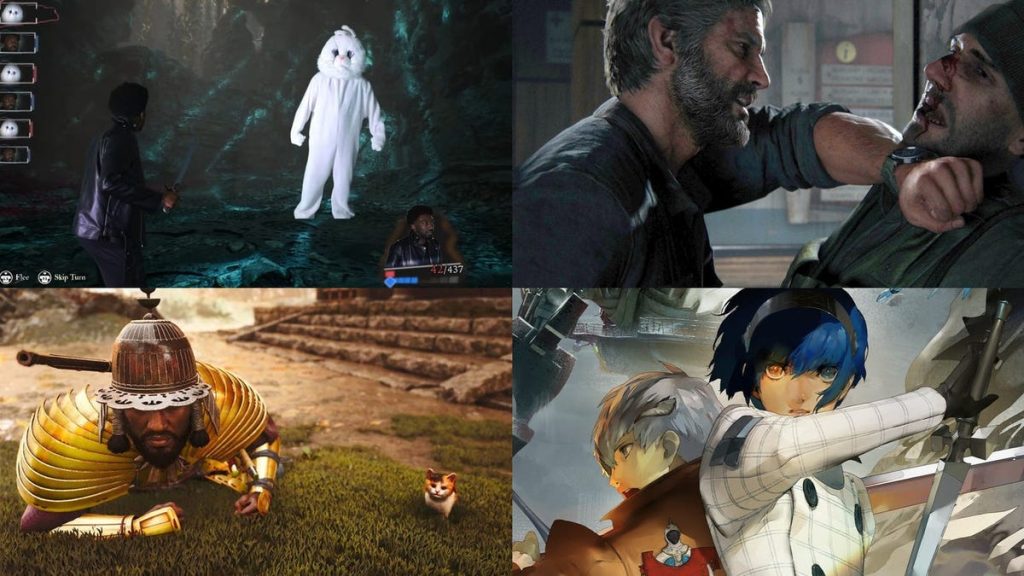This past week in gaming has sparked significant discussions surrounding the ethical boundaries of artificial intelligence and how it intersects with beloved franchises. Notably, Fortnite has found itself at the center of controversy after the voice of Darth Vader, famously portrayed by the late James Earl Jones, was replicated using AI technology. This event has prompted the Screen Actors Guild – American Federation of Television and Radio Artists (SAG-AFTRA) to intervene, raising concerns about voice actors’ rights and the implications of AI in the entertainment industry. Meanwhile, Assassin’s Creed: Shadows has stirred its own debate regarding gameplay choices, while The Last of Us continues to evolve in storytelling under the guidance of its creative director, Neil Druckmann.
AI and the Future of Voice Acting
The use of AI in video games has been a hot topic for some time, but the application of this technology to imitate the voice of a deceased actor has raised the stakes significantly. The recent deployment of an AI-driven voice for Darth Vader in Fortnite has attracted the attention of SAG-AFTRA, which argues that this practice undermines the hard work and creative contributions of voice actors. James Earl Jones, renowned for his deep and commanding voice, epitomized the character of Darth Vader for decades. The ability to use AI to replicate his voice poses ethical concerns about consent and copyright, especially in a field where actors’ voices are a crucial part of their identity.
A representative from SAG-AFTRA stated, “Using an AI-generated voice of an iconic actor without their consent not only diminishes the value of the work but poses a serious moral dilemma for the industry.” The union is currently advocating for stronger regulations to protect the rights of voice actors against unauthorized use of AI technology, particularly as more gaming companies explore similar applications.
Gameplay Choices in Assassin’s Creed: Shadows
In a separate yet equally intriguing development, the creators of Assassin’s Creed: Shadows have dropped hints about gameplay design decisions that have left fans both intrigued and confused. One notable choice is the decision not to include the option to hunt animals within the game’s expansive open world. This decision stems from a desire to promote a specific narrative and ethical approach to storytelling.
In an interview, the game director explained, “We want to steer clear of typical gaming tropes that glorify violence towards animals. The world we’re building is one where every creature has a role, and we want players to experience that without the distraction of hunting mechanics.” This approach is reflective of a growing trend among developers who are reconsidering the themes and messages conveyed through gameplay mechanics.
The Last of Us: Exploring Ambiguities
Meanwhile, Neil Druckmann, the co-president of Naughty Dog and a principal figure behind The Last of Us series, has been vocal about the complexities of storytelling in video games. Recently, he shared his perspective on the importance of ambiguity in narrative, suggesting that some aspects of the story benefit from leaving certain elements unexplained. “We want players to engage with the story, to draw their conclusions and discuss them with others. If everything is laid out clearly, we lose that sense of mystery and emotional connection,” Druckmann stated in a recent conference.
This approach has sparked a polarized response among fans, with some applauding the studio’s commitment to deep, thought-provoking narratives, while others crave clearer resolutions to the unfolding stories. As the gaming community continues to share its thoughts on these creative decisions, it becomes evident that the balance between narrative complexity and audience reception remains a delicate one.
Industry Reaction and Community Response
The developments surrounding AI voice replication, gameplay choices in Assassin’s Creed: Shadows, and narrative ambiguity in The Last of Us have collectively triggered a robust dialogue within the gaming community. Players are expressing their opinions on social media platforms and gaming forums, debating the ethical implications of AI and the artistic direction of notable titles.
Additionally, the gaming industry is closely monitoring these reactions. As voice actors, developers, and audiences continue to navigate these complex issues, it is becoming increasingly clear that the future of gaming will be shaped not only by technological advancements but also by the moral and ethical considerations that accompany them.
Quick Reference Table
| Topic | Key Point |
|---|---|
| Fortnite | AI-generated Darth Vader voice causing SAG-AFTRA controversy. |
| Assassin’s Creed: Shadows | Decision against animal hunting for narrative focus. |
| The Last of Us | Neil Druckmann emphasizes storytelling ambiguity. |
As the dialogue continues, the gaming industry stands poised at a crossroads, where technological innovation meets the artistic integrity of storytelling. The outcomes of these discussions will likely influence future projects and the expectations of gamers worldwide.

